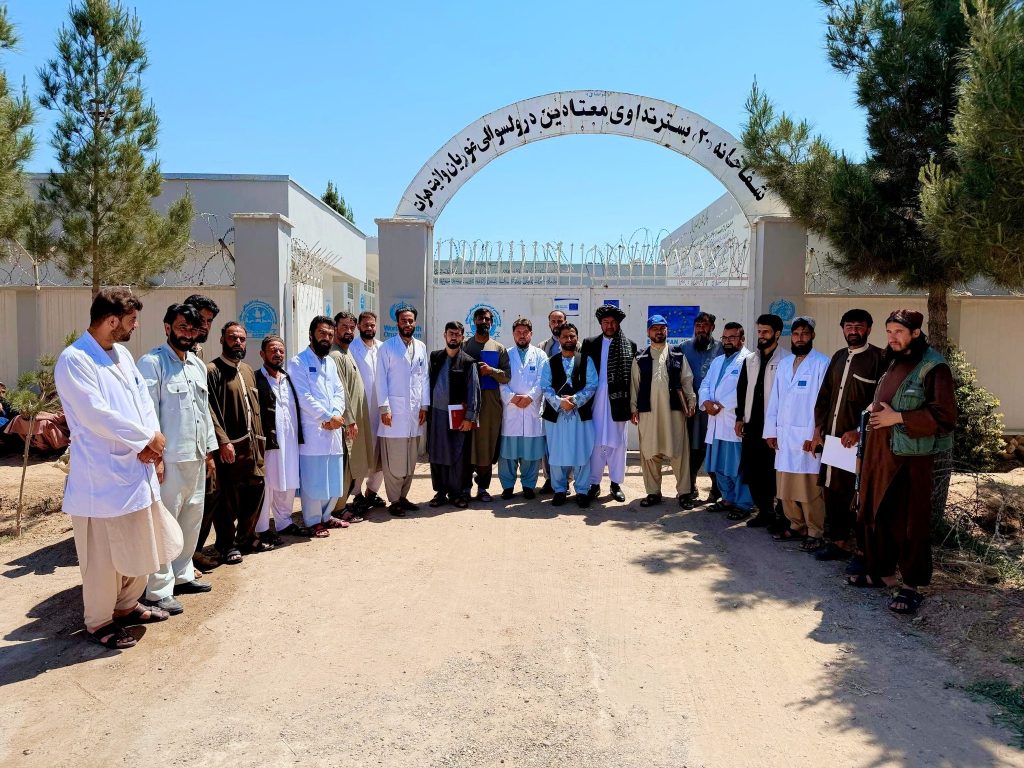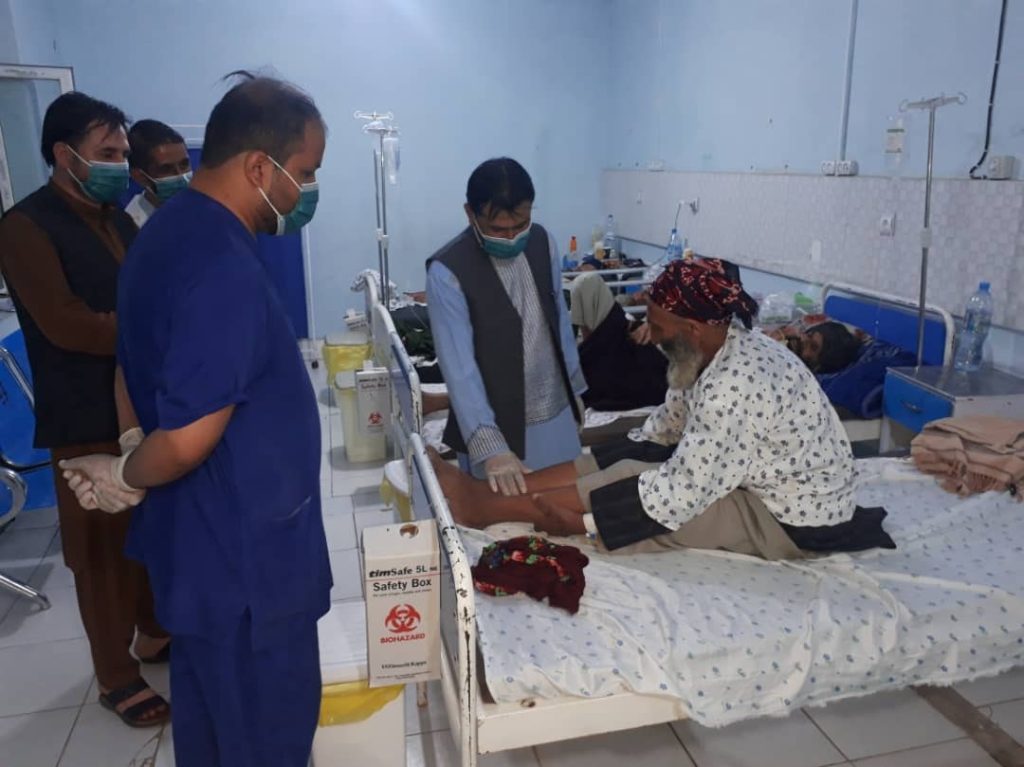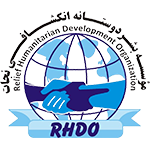Dr. Faiz Mohammad Atif and Dr. Emal Mangal Lead Field Visits to Assess and Enhance Project Implementations in Western Afghanistan

Dr. Faiz Mohammad Atif, General Director of the Humanitarian Development Organization, along with Dr. Eimal Mangal, the organization’s Technical Affairs Officer, conducted project (OST) visits in Helmand, Farah, and Herat provinces. On April 20–21, 2025, Dr. Faiz Mohammad Atif and Dr. Emal Mangal held a coordination meeting with project office in Helmand province. The meeting emphasized service quality and achievements, addressed staff challenges, and implemented necessary actions and recommendations to resolve issues. Additionally, coordination meetings were held with officials from the UNICEF and Economy in Helmand province. On April 23, 2025, a field visit was conducted in Farah province to closely observe the project (DATC 80beds). Coordination meetings were also held with officials from the Departments of government, Public Health and Economy. Necessary measures were taken to improve work processes, and recommendations were provided to provincial project officials to ensure better implementation. Support was expressed for the services and activities carried out. During the same trip, a project visit was conducted in Herat province (DATC 20 beds) , and comprehensive support was provided to ensure effective implementation. Throughout the visit, employees who demonstrated dedication and strong performance in their duties were encouraged and awarded certificates of appreciation.
Paktika Mission Report 2025

Monitoring and Supervision Summary – WFP GFA Project, Paktika Province As per the monitoring and supervision plan, a scheduled field visit was conducted for the WFP General Food Assistance (GFA) and Bil and Melinda Gates Foundation (BMGF) projects in Paktika province. The visit began with an introductory meeting with the project manager and staff, where the mission’s objectives were shared. The primary goal was to assess project implementation, identify gaps, and recommend corrective actions. While implementation in the field was proceeding as planned, major issues were noted regarding documentation—many records were incomplete or missing. Initial interaction with the GFA project manager was challenging due to lack of prior communication. However, after presenting official identification, the monitoring activities proceeded. A meeting was also held with the Third-Party Management (TPM) sub-office, where implementation and outcomes were discussed. While they expressed general satisfaction, they acknowledged documentation as a major weakness. Additionally, a key meeting with the Director of Public Health (PPHD) was conducted. The Director praised RHDO’s work and pledged full cooperation, emphasizing the need for timely communication of any issues. Mission Objectives: Coordination Outcomes:
Distribution of certificates to IMAM training recipients by TSFP coordinator.

During the annual evaluation and review meeting of the TSFP project, key achievements, challenges, and lessons learned were presented to stakeholders. The Deputy of Public HealthCare officer of Zabul appreciated the TSFP initiatives and underscored the critical need for enhanced coordination among nutrition stakeholders to optimize service delivery. Participants emphasized the importance of expanding joint supervision efforts to facilitate knowledge exchange, improve best practices, and strengthen the overall impact of nutrition interventions.
Provision of TSFP services to disabled child at health facility level.

recruitment, transportation resources, and budget allocations for staff training and supervision. Key decisions made during the review, including increasing joint supervisions, improving storage capacity, expanding the MAM program, and enhancing coordination with nutrition partners, are critical for further strengthening the program’s impact in 2025. By implementing these decisions, RHDO can continue to improve service delivery, ensuring that the most vulnerable populations in Zabul receive the necessary nutrition support. Looking ahead, RHDO remains committed to addressing the challenges identified and optimizing the effectiveness of the TSFP project through targeted interventions, robust monitoring, and continuous capacity building, all of which are crucial for enhancing the nutritional status of children and pregnant and lactating women in Zabul Province.
Conducting screening by TSFP by TSFP Assistant at OPD-MAM site.

In conclusion, the annual review meeting for the TSFP project in Zabul Province provided a comprehensive evaluation of the program’s performance during 2024, highlighting both its achievements and challenges. The project successfully met and exceeded several key targets, particularly in terms of treatment coverage and the distribution of specialized nutritious foods. Notably, the engagement of community stakeholders, the capacity building of staff, and the strengthened coordination with provincial nutrition partners were critical to achieving these outcomes. However, challenges such as human resource constraints, logistical difficulties in remote areas, and insufficient supervision resources were also identified. These issues were addressed with effective mitigation strategies, but additional support is required for continued success, particularly in terms of female staff recruitment, transportation resources, and budget allocations for staff training and supervision. Key decisions made during the review, including increasing joint supervisions, improving storage capacity, expanding the MAM program, and enhancing coordination with nutrition partners, are critical for further strengthening the program’s impact in 2025. By implementing these decisions, RHDO can continue to improve service delivery, ensuring that the most vulnerable populations in Zabul receive the necessary nutrition support. Looking ahead, RHDO remains committed to addressing the challenges identified and optimizing the effectiveness of the TSFP project through targeted interventions, robust monitoring, and continuous capacity building, all of which are crucial for enhancing the nutritional status of children and pregnant and lactating women in Zabul Province.
Night Time Supervision of a 50-Bed Infectious Disease Hospital in Balkh Province by Relief Humanitarian Development Organization

The Relief Humanitarian Development Organization, which oversees the implementation of healthcare services at a 50-bed infectious disease hospital in Balkh province, conducted nighttime supervision to ensure the smooth execution of operations. Dr. Eimal Mangal, the technical deputy from the central office, along with provincial head Dr. Azizullah Afzali, carried out the visit. They found that all the on-duty personnel were present at their posts, diligently providing healthcare services to those in need with full sincerity
Provincial Hospital in Panjshir Province to Provide Secondary Health Services

In fact that there is no Provincial hospital in Panjshir Province to provide secondary Health services, But Rokha district hospital provides primary and secondary health services which implements through Relief Humanitarian Development Organization funded by (WHO), Based on that RHDO has successfully activated ICU (Intensive Care Unit) Section in Rokha District hospital in order to provide high quality health services to the vulnerable people of Panjshir Province.
RHDO Emergency Response to Earthquake

Relief humanitarian development organization (RHDO) has provide a series of humanitarian aid to the earthquake affected families in Gyan and Barmal districts of paktika province. For better management and assistance general director Dr. faiz Mohammad atif has visited the affected area and has so far provide assistance in the following area’s: 1-Health services: The medical services are provided by the mobile emergency medical team. The four mobile emergency medical teams, two in Gyan and two in Barmal, are equipped with ambulance and emergency medical kits. 2-Rescue Team’s: These teams which has 78 members they are responsible for evacuating the devastated villages and has provided 22 Astani to transport the injured and affected families members to hospitals and safe areas. 3-food distribution: RHDO has so far been distributing food package to 217 families in Barmal district which include flour,oil,pulses,salt and other essential food items. At the same time it is planned to distribute food packages to 1900 more families in tow mentioned district’s.

